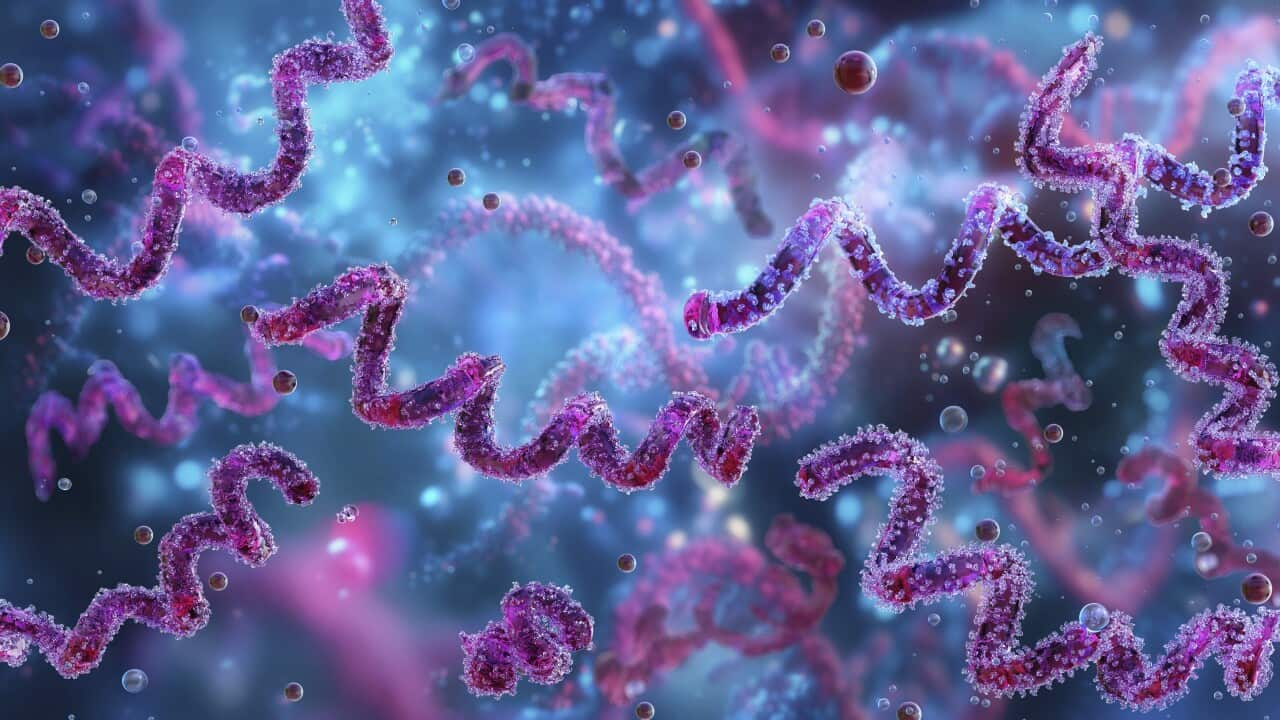Infant deaths linked to a sexually transmitted infection in Australia have prompted health authorities to sound the alarm.
Chief medical officer, Michael Kidd, declared syphilis a Communicable Disease Incident of National Significance (CDINS) on Thursday, adding the declaration "will bring together national efforts to coordinate an enhanced national response".
CDNIS refers to a disease incident that necessitates the application of national policies, interventions, public communications, or the deployment of Commonwealth resources to support the affected areas.
"I am very concerned about the ongoing impact of syphilis on public health," Kidd said.
"Infectious syphilis cases have been on the rise across Australia, resulting in tragic cases of congenital syphilis and infant deaths, which might have been prevented."
Between 2016 and 2024, 99 cases of congenital syphilis were reported in Australia, leading to the deaths of 33 infants. More than half were Aboriginal and Torres Strait Islanders.
So far in 2025, Australia has recorded 3,546 cases of infectious syphilis and 11 cases of congenital syphilis, which have led to the deaths of four infants.
Here is everything you need to know about syphilis.
What is syphilis?
Syphilis is a sexually transmitted infection that can lead to serious health problems if it is not treated.
The infection usually happens in four stages:
- Primary syphilis
- Secondary syphilis
- Latent syphilis
- Tertiary syphilis
Over the past 10 years, syphilis case reports in Australia have risen significantly, according to Healthdirect, Australia's virtual public health information service.
The Department of Health has reported that since reporting started in 2004, infectious syphilis notifications reached the highest levels in 2023, "affecting people in almost all parts of Australia".
What are the symptoms?
Many people with syphilis do not notice any symptoms, and the World Health Organisation (WHO) says it can also go unnoticed by healthcare providers.
"Similar to other sexually transmissible infections, syphilis often shows no symptoms, and can go undetected and untreated," Kidd said.
Depending on which stage of the disease the patient is experiencing, symptoms vary.
Those in the primary stage can notice a painless sore or sores in or on their mouth, anus, penis, vagina, or cervix.
In the second stage, symptoms include a red rash on the palms of the hands, soles of the feet, chest, or back, as well as fever, hair loss, headaches, and tiredness, according to Healthdirect.
Latent syphilis may have no obvious symptoms, and it can stay hidden for life or develop into tertiary syphilis, when the bacteria can damage any part of the body, causing serious disease.
WHO also says babies born with the infection can experience:
- Rashes
- Inflammation in the organs
- Anaemia
- Bone and joint problems
- Neurological conditions
- Developmental delays
- Seizures
Is it deadly?
If left untreated, syphilis can lead to serious health problems, especially for pregnant people and their babies, Kidd said.
According to WHO, syphilis can increase the risk of HIV infection and cause severe diseases, while tertiary syphilis "can cause death".
How is syphilis transmitted?
As a sexually transmitted infection, syphilis can be transmitted during unprotected skin-to-skin contact during vaginal, anal or oral sex.
Syphilis is highly contagious during the primary and secondary stages; however, even in the early latent phase, when no sores are present, infected individuals can still transmit the disease to others.
The disease can also spread to babies during pregnancy, leading to serious health problems.
It could also occasionally be transmitted by blood contamination.
Is there any cure for syphilis?
The good news is that the disease is curable.
"Syphilis is preventable, and is easy to treat if found early. Testing and treatment are simple and accessible. Congenital syphilis can be completely prevented through early detection and treatment of syphilis in pregnant people and their partners," Kidd said.
While there is no effective vaccine for syphilis, Healthdirect suggests syphilis can also be prevented by practising safe sex.
Who is at more risk?
Aboriginal and Torres Strait Islander people remain disproportionately impacted, with infectious syphilis notification rates seven times higher than those of non-Indigenous Australians overall in 2024.
According to Healthdirect, other population groups that are more at risk include males who have sex with males, females of childbearing age and people living in outback areas or regional and remote Australia.
For the latest from SBS News, download our app and subscribe to our newsletter.

